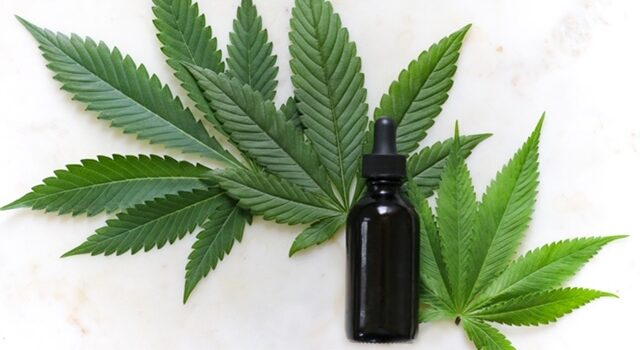 Education
Education
What are the benefits of CBD?
Cannabidiol, better known by its acronym, CBD, has been the new focus of many therapeutic treatments for physiological processes such as memory, mood, and behavior. Much of the CBD for sale online has the potential to help with these processes. With the passing of the Farm Bill (2018) that made CBD federally legal, more and more studies have been conducted or are being conducted to develop a deeper understanding of how CBD interacts with our bodies endocannabinoid system (ECS) and how if affects physiological processes. Here is what we know so far . . .
The Endocannabinoid System
The ECS is a bodily system which keeps the body in a state of homeostasis. Homeostasis is when all of the bodies interconnected systems are functioning within a narrow operational range. The prefix, endo, means coming from within. A cannabinoid is a molecular compound which includes the active parts of cannabis. Cannabinoids occuring outside the body (CBD and THC) work with the ECS similarly to endocannabinoids (2-AG and anandamide).
There are three (3) parts to the ECS: cannabinoids, cannabinoid receptors, and metabolic enzymes. Cannabinoids such as CBD, THC, 2-AG, and anandamide activate cannabinoid receptors CB1 and CB2. Once activated, these receptors create your bodies response promote homeostasis. Metabolic enzymes such as FAAH and MAGL breakdown cannabinoids which in turn deactivates cannabinoid receptors.
CBD and Memory, Mood, and Behavior
Your ability to remember events and form memories can be hindered by a number of conditions or traumas. Even your mood and behavior can be affected. Dementia-related conditions such as Alzheimer’s Disease (AD), Vascular Dementia, Parkinson’s Disease, Huntington’s Disease, and more can be positively impacted with CBD use.
Alzheimer’s
A human clinical trial based in the U.K. and funded by Alzheimer’s Research U.K. has recently began. More and more trials will begin as the safety of CBD has been confirmed by the World Health Organization. They say there are “no public health problems associated with the use of pure CBD” (WHO). Alzheimer’s is a neurodegenerative disease. This means the nervous system is degenerating. Neuroinflammation (inflammation of the nervous tissue) and oxidative stress (a harmful imbalance of oxidants and antioxidants) are the main characteristics associated with the disease. In lab results, CBD has been shown to have neuroprotective, antioxidant, and anti-inflammatory qualities. A 2017 study conducted tests using living organisms and found that CBD can reduce the neuroinflammatory response as well as promotes neurogenesis (the growth and development of nervous tissue). In addition, CBD was shown to “ . . . reverse and prevent the development of cognitive deficits in [Alzheimer’s Disease] rodent models” (Watt, Karl, 1). A cognitive deficit refers to an impairment of mental processes that make it difficult for an individual to form memories, learn new concepts, concentrate, or make everyday decisions.
Vascular Dementia
Vascular Dementia is caused by an insufficient supply of blood flow to the brain. A study has found that activating the cannabinoid receptor CB2 decreases obstruction of blood flow to the brain (decreasing cerebral infarction). This could potentially increase the activity level of brain cells as well as decreasing damage to brain cells that is associated with vascular dementia.
Parkinson’s Disease
Parkinson’s disease is a neurological disorder in which the brain cells that produce dopamine are damaged and eventually die off. Dopamine is a neurotransmitter (chemical messenger) that sends signals to the brain in relation to bodily movement. These movement issues can further develop into Parkinson’s Disease Dementia which affects cognitive functions similar to those described above in relation to Alzheimer’s. A study has shown that Parkinson’s patients with psychosis “ . . . showed a significant decrease [of psychosis] under CBD treatment”. In addition, there were no adverse effects and CBD was determined to be “safe and well tolerated for the treatment of psychosis in [Parkinson’s Disease]”.
Trauma
Memory loss and behavioral issues due to a traumatic brain injury can also be positively affected with CBD use. Inflammation in the brain after a head injury is common. As mentioned prior, CBD can be a strong anti-inflammatory agent. The ECS has also been shown to play a role in recovery post traumatic brain injury. “Functional recovery was significantly enhanced” when the endocannabinoid, 2-AG, when introduced to the brain. CBD behaves similarly to 2-AG, suggesting that it may be useful in recovery.
PTSD
Post-traumatic stress disorder (PTSD) is triggered by an individual experiencing or witnessing an awful event. Reliving the trauma (flashbacks) is a common symptom of PTSD. Many will attempt to avoid thinking about the event and this could negatively affect mood, memory, and even day-to-day behavior. Extinction learning is a therapy that has been found to be helpful in the treatment of PTSD symptoms. Extinction learning is described as a gradual decrease in the response to a conditioned stimulus (e.g. the traumatic memory of the event). A study from 2013 found “ . . . that CBD can enhance consolidation of extinction learning in humans and suggest that CBD may have potential as an adjunct to extinction-based therapies for anxiety disorders”. This means that CBD use could be a powerful therapeutic tool to treat PTSD symptoms.
Addiction
Addictive urges can be about anything you find pleasurable. This could be drugs, alcohol, nicotine, video games, sex, or food. One factor that could contribute to addictive tendencies is the neurotransmitter, dopamine. After it is formed, dopamine eventually travels to the brain’s amygdala. In the amygdala, dopamine stimulates the brain via emotional responses to pleasurable memories. This can promote reward-seeking behavior. CBD has been found to interfere with brain reward mechanisms” (Study 2013).
Final Thoughts
Now with cannabidiol being federally legal, you can find CBD for sale easily accessible and can have many uses in relation to the physiological processes each of us experience. The Endocannabinoid System creates bodily responses to anything that knocks us out of our balanced operational state called homeostasis. CBD, a cannabinoid that naturally occurs outside the body, interacts with the ECS in a similar fashion to endocannabinoids (cannabinoids from within the body) such as 2-AG and anandamide. Physiological processes such as mood, memory, and behavior can be negatively affected by disease, trauma, extreme stress, addiction, and more. The symptoms of each can be positively affected as a result of the properties CBD seems to possess. This includes neuroprotection, antioxidation, anti-inflammation, and interaction with the bodies dopamine production and response. Before beginning use with CBD and CBD products, consult your physician.




1 COMMENT
seo paketleri, seo hizmeti, seo satın al
seo paketleri, seo hizmeti, seo satın al
seo paketleri, seo hizmeti, seo satın al
Comments are closed.